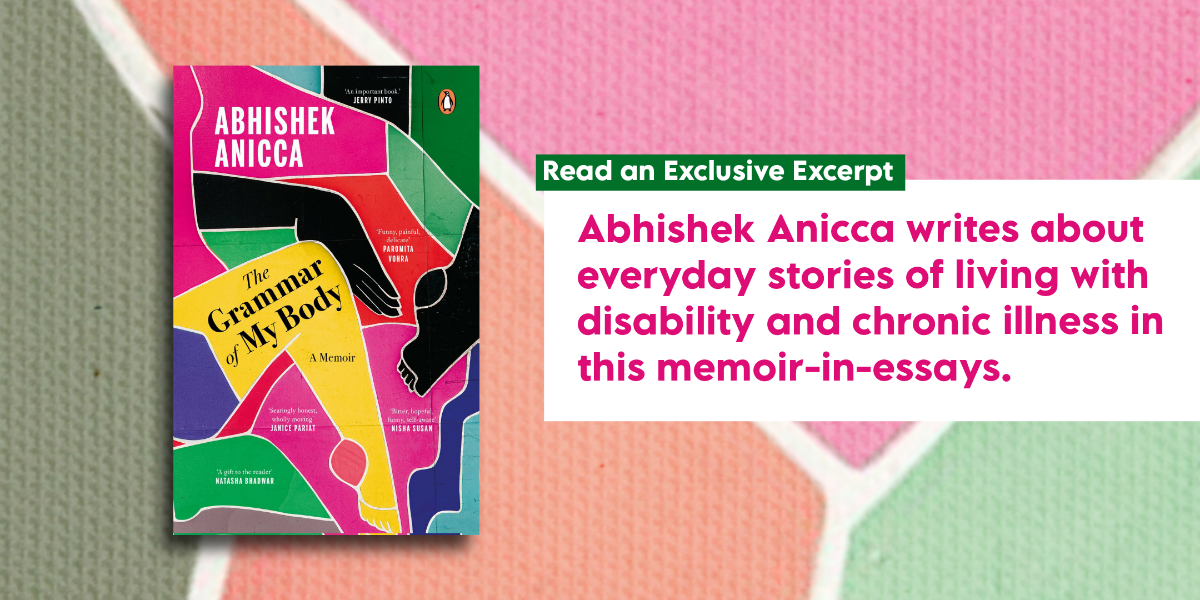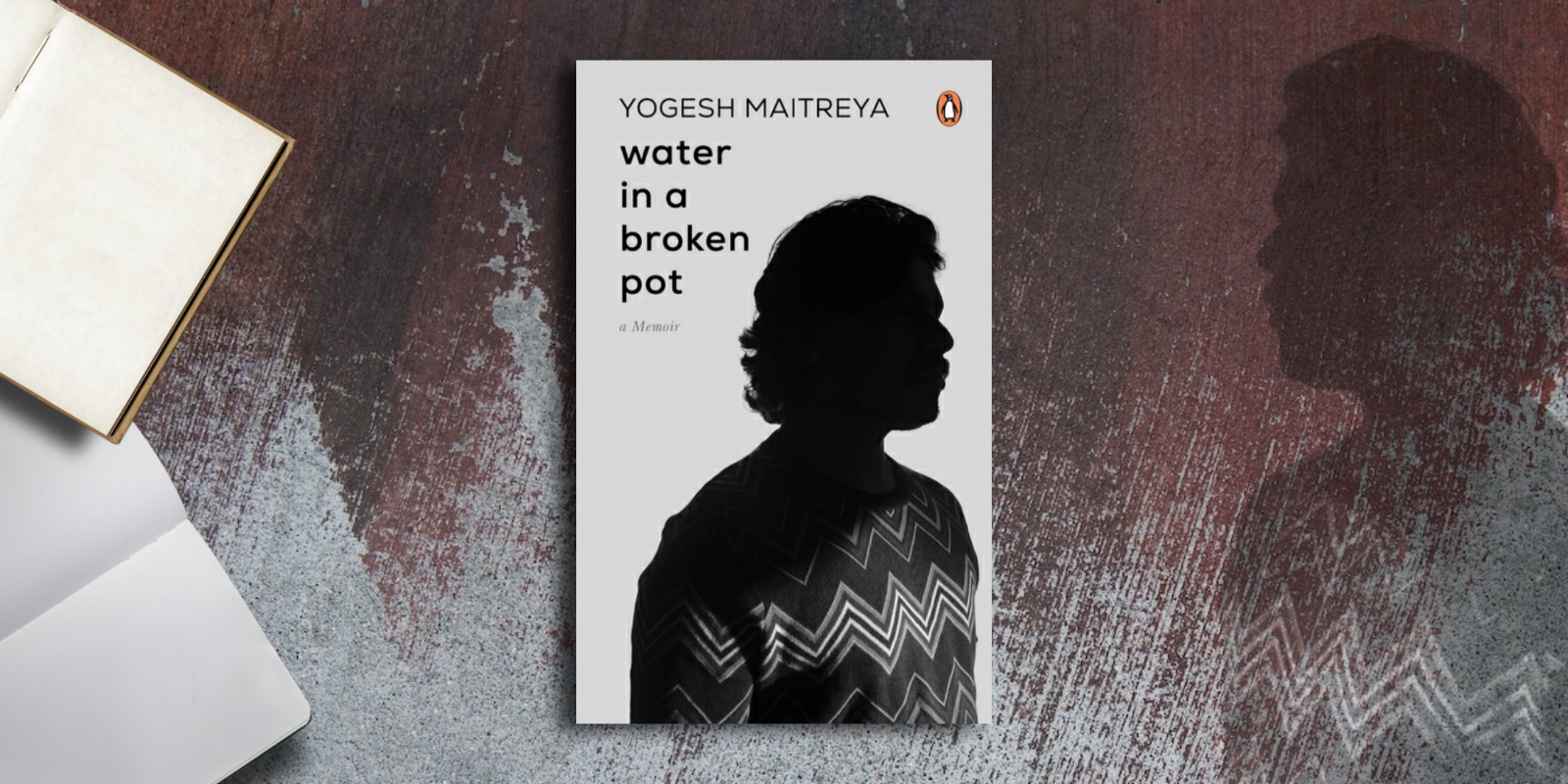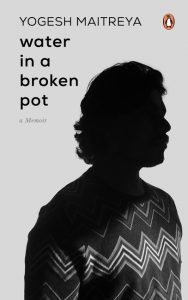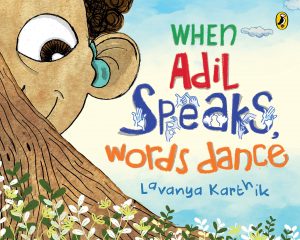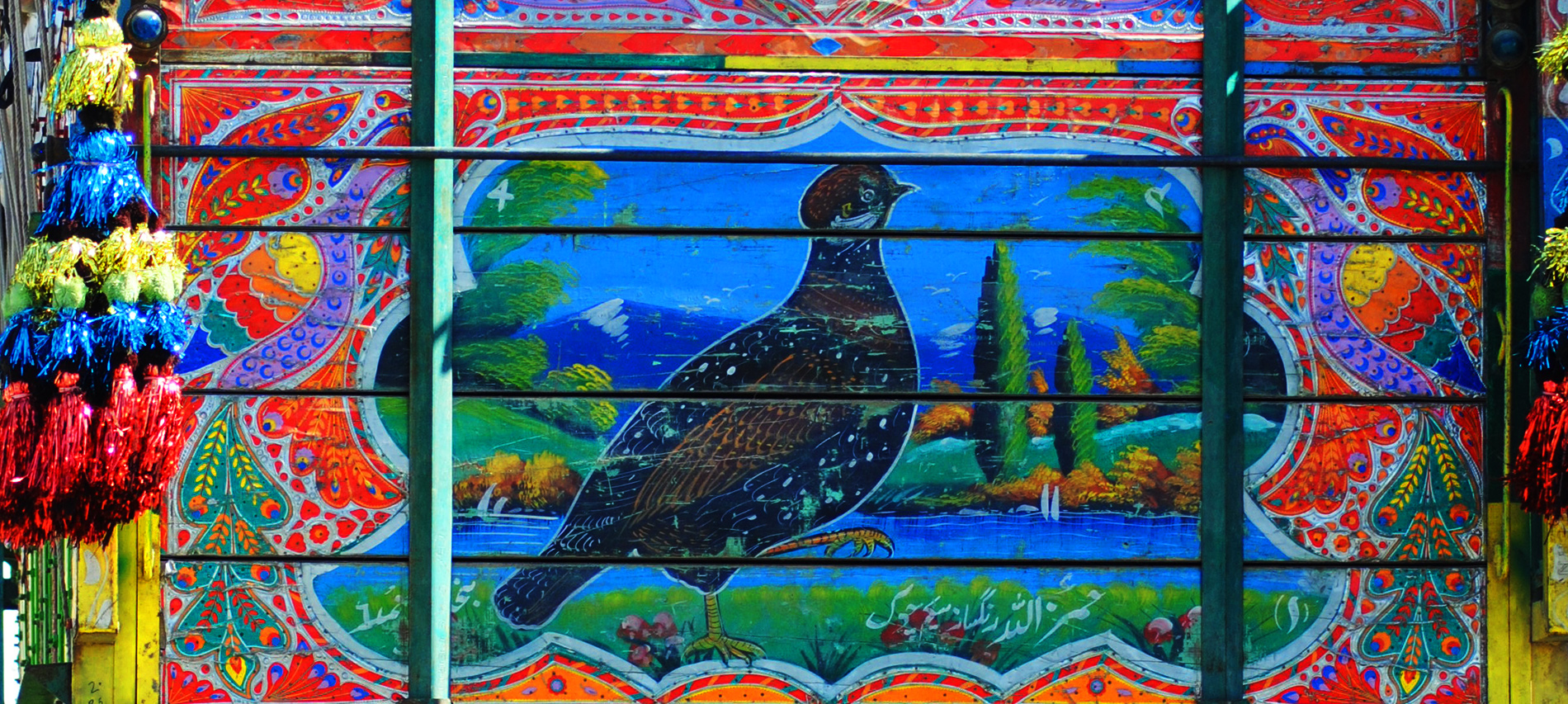Ever wondered what it’s truly like to date with a disability? Abhishek Anicca spills the beans in his book, The Grammar of My Body. Buckle up for a journey into his world, where he breaks stereotypes and shares the real talk about love, relationships, and the unique adventures of being a queer-disabled man. Get ready to dive into a story that’s anything but ordinary!
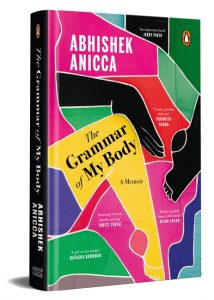
That’s a match
In my fantasies
I draw you
with a pencil
I draw myself
with an eraser
I have a fear, buried deep down inside me. That someday, someone will find me attractive. Someone would want to touch me, make love to me. Running their hands over my disabled body. Not turned off by the proportions of my body or the way it lies on the bed, hunched, like it is walking through a dream.
What should I tell them before we make love? Should I tell them that I wear a diaper? They would know that eventually. How would I tell them that? Should I start with my history of diseases? I have to tell them about my scoliosis. And my infections. My urinary tract infections. Infections that recur with growing frequency these days. We would use a condom. We have to use a condom. ‘Here, take E. coli. And thanks for making love to me.’ I can’t do that to anyone. Not after knowing that they like my body.
The thought makes me scared. I don’t know if I am capable of having penetrative sex. I haven’t done that for almost a decade. Not since I became disabled. The first few years of being disabled were just about coping with disability. How to go out without your bladder getting the best of you. Or, worse still, when you lose control over your shit while walking outside, in a mall. You run towards the bathroom, but it’s already too late. The film is about to start. My friends are waiting. There is no way I can watch the film now. My nerves are aching. There is a spasm that makes it hard for me to use my right leg. ‘Sorry, I had some urgent work. Had to rush out.’ No more movie plans for me. Not before I learn how to empty my bowels before I step out of the house. And wear a diaper just in case my bowels betray me. Adult diaper, my best friend.
‘Adult diaper’, the words cause a flutter in the medical store. They pile up in my wastebasket every week till I pack them in a black dustbin bag and deliver them personally to the garbage bin. A secret document of my lived life, delivered without anyone noticing. I was scared about sharing this secret even with friends. The word might get out soon and ruin whatever chances I had of going out on a date. Not that wearing a diaper was the only deal-breaker.
What does it mean to love a disabled person? Does it mean empathy? Do you empathize with your lover? Maybe it’s about passion. And understanding. But can you understand someone without empathizing with them? ‘I love you. I am sorry but I don’t want to be a
burden on you.’ My friend says disabled people can be negative. I agree. We are so negative that sometimes the able-bodied mind never reaches us. The distance is too far on a number line.
Recently, a cab driver asked me if I was married. I said no. He said ‘Oh! You have money, you must be getting laid anyhow.’ I looked at his face in the mirror beside him. A young man in his twenties. Maybe for him, access to sex was just about money. Maybe he had been rejected by someone because of money. Maybe I didn’t tell him that my only date, through an online dating site, was with a disabled girl. We went on a date and she only wanted to talk about our disability. Plus, getting sex was not a problem for her. ‘Men are bastards, they
don’t care if you are disabled, they just want to do it.’ I wasn’t envious any more.
There are times when I am full of self-hatred for my body. I don’t have a dressing table at home. It makes me feel better about myself. I keep telling myself that I am losing weight. But T-shirts don’t lie. I was in the hospital for a month around January with a severe kidney infection and by March, all of my T-shirts were tight. I thought you were supposed to lose weight when you fell ill. All givens escape me
Being fat is the least of your problems when you are wearing a diaper and have a urinary tract infection all the time. You pee so much that you forget male genitalia has any other purpose. It’s when you get better that your desire reawakens. But then, everyone makes you look in the mirror. You are still fat and disabled. You become sad. And then depressed. Spells of decent physical health occupied by bad mental health. Till it becomes a self-repeating cycle.
In my defence, I would like to say I love myself. But that is probably going too far. The first time I proposed to a girl as a twenty-year-old, she told me she liked me but didn’t love me. I think I agree with her. Even I possibly only like myself.
The thought of not being loved doesn’t haunt me any more. It bothers my romantic heart sometimes. But there are so many people who can’t find love. So I go out, have fun with friends, read books, write poetry and enjoy long platonic conversations
It’s just a few minutes every day. Probably around midnight. When my body hurts. It laments everything that eludes it. Every touch. Every sensation. And only then it is reminded of its incompleteness. Incomplete. Yearning. Longing. It’s like a melancholic song that never ends.
***
Get your copy of The Grammar of My Body by Abhishek Anicca wherever books are sold.







